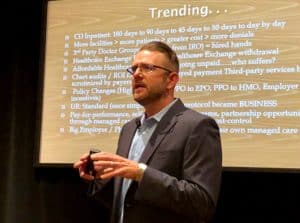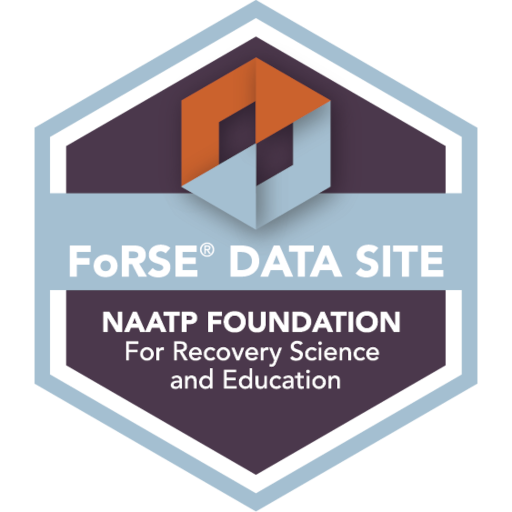 |
| Cade Saurage, La Hacienda’s Director of Utilization Management and Partnerships, enthusiastically embraces his work. He recently shared the reason for that zeal with a meeting room filled with treatment center professionals in Denver.
“Making sure a patient has enough time in clinical care and counseling — so they can start over with a new life — that is why I’m passionate about utilization review,” Cade told attendees at the 2018 National Association Addiction Treatment Providers Leadership Conference. “Sure, longer treatment stays cost money, but it’s important to make sure that our patients receive the care they need.” Cade, who has worked in managed health care for more than 17 years, admitted that the process of getting insurance companies to approve payments might not be “a very lively subject,” but said his initial approach was combative. “When I first got involved, I was frustrated. I was passionately representing addicts and alcoholics on the phone with the insurance companies. I would get aggressive. I’d yell and get all sweaty. But in the long run, I was getting nowhere, and the insurance companies did not want to work with me.” So he changed his style. He refocused on building partnerships with the insurance company representatives. “Treatment centers and insurance companies want the same thing. They want patients to get sober and to stay sober.” But there is a difference. “We want more time to do it, and they want it done in less time.” Cade said it is essential to get to know the insurance company reps, to talk to them on the phone, to work toward a face-to-face meeting with them, and to invite them to see your facility. He also encouraged keeping profiles on the representatives. “They’ve got one on you.” The best insurance company person to work with is “the ambassador of change,” the staff member who wants to change the system for the better. Debra Nussbaum, whom Cade identified as an example of an ambassador of change in the health insurance industry, was co-presenter with him. “We’ve been educating people that substance use treatment is not a ‘one and done,’” she said. “You don’t send your adult child off to another land, and someone else is going to fix them, and they’re going to come home and be all better. That’s not how it works.” “We’re talking about chronic long-term care. It’s going to require maybe multiple episodes of care, intensive services down to outpatient services, back up to intensive services, lots of slips and slides,” said Debra, who is Senior Director for Behavioral Health with Optum. Cade also spoke regarding building a strong utilization review department. He said an excellent UR team includes the following:
Noting that insurance companies are wary because they have been lied to by providers, Cade cited the importance of speaking the truth. “As a director, I want my staff to try hard, but they understand that under no circumstances do I want them being dishonest.” |
| #laharecovery |




